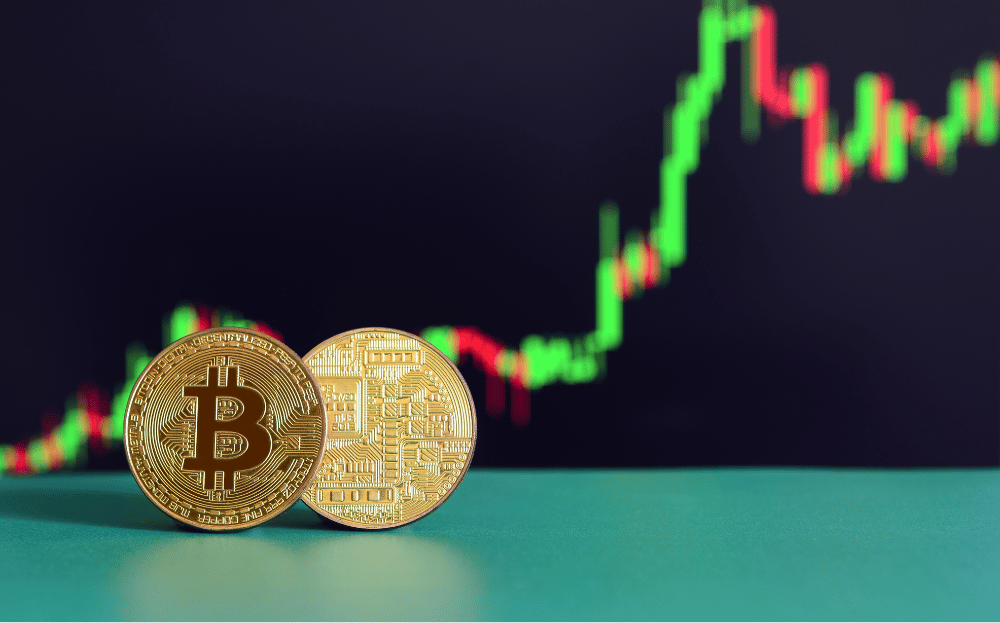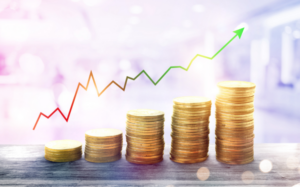A store of value is an asset that maintains its value over time without depreciating. Such assets can be stored, retrieved, and exchanged in the future, with the expectation that their value will remain the same or even increase.
Common examples of stores of value include gold, currencies, and some digital assets, as they can preserve purchasing power over time. However, in recent years, Bitcoin has emerged as a new contender.
Amid concerns about economic recessions, it’s essential to choose an investment instrument that can safeguard your asset value against economic uncertainties. Read on to find out which investment is better for storing asset value.
1. Historical Stability and Track Record
Gold has been a trusted store of value for thousands of years. From ancient Egyptian civilizations to the present day, gold remains a reliable asset. Its deeply rooted value in human history and culture makes it a universally accepted form of wealth.
Gold has stood the test of time, surviving economic cycles, wars, and financial crises. While its price fluctuates, gold has consistently retained its intrinsic value for centuries. In contrast, Bitcoin only emerged in 2009. Despite being relatively new, Bitcoin has garnered significant attention for its concept of digital currency and the high returns it has occasionally offered due to sudden price surges.
2. Intrinsic Value and Tangibility
One key difference between gold and Bitcoin is that gold has intrinsic value. Its value isn’t solely based on market perception or sentiment but also on its physical properties and uses.
Bitcoin, however, lacks intrinsic value. Its worth is entirely determined by how much people are willing to pay for it. While this can lead to speculative gains, it also means Bitcoin is highly volatile and susceptible to rapid changes in market sentiment.
Though both digital gold and Bitcoin lack physical form, digital gold on Treasury can be converted into physical gold according to the specified weight, ensuring it retains intrinsic value.
3. Regulation and Market Maturity
Gold is a well-regulated commodity with an established market and trading systems, ensuring transparency and liquidity. Investors can buy, sell, or trade gold confidently in a stable and mature market.
On the other hand, Bitcoin is still in the early stages of regulatory development. The lack of comprehensive regulations makes Bitcoin more vulnerable to market manipulation, fraud, and uncertainty. Regulatory changes can significantly impact Bitcoin prices, adding an additional layer of risk not found in gold.
4. Price Volatility
Bitcoin is notorious for its extreme price volatility. Since its inception, Bitcoin has experienced dramatic price swings, with values rising and falling by thousands of dollars within days or even hours.
Such significant fluctuations, driven by market sentiment, make Bitcoin a risky asset for those looking to preserve long-term wealth. In comparison, while gold prices also fluctuate daily, the changes are generally more predictable. Factors such as inflation, U.S. Federal Reserve interest rates, and geopolitical events influence gold prices. However, these changes tend to be less extreme and more manageable on average.
5. Global Acceptance and Liquidity
Gold is universally recognized and accepted as a store of value. It can be easily traded or sold anywhere in the world, offering high liquidity. This global acceptance ensures gold’s usability as a medium of exchange.
While Bitcoin is widely known, it isn’t universally accepted as a medium of exchange. Its liquidity remains limited to specific groups compared to gold. Moreover, due to its relatively young age, Bitcoin’s liquidity can quickly dry up during financial crises or extreme volatility, making it harder to sell or trade.
6. Protection Against Inflation
Gold has long been used to hedge against inflation effectively. When a country’s currency value drops due to inflation, gold prices tend to rise, preserving purchasing power. Even central banks worldwide hold gold reserves as a backup asset.
Bitcoin advocates argue that its limited supply allows it to act as an inflation hedge. However, Bitcoin’s short history and highly volatile prices make it difficult to prove its resilience against inflation.
7. Environmental Impact
While the primary goal of investment is to preserve asset value, have you considered the environmental impact of your investment?
Gold mining produces carbon emissions. It is documented that every gram of gold invested results in 0.028 tons of carbon emissions. Similarly, Bitcoin also has a significant environmental impact due to its high energy consumption. Mining Bitcoin requires enormous amounts of electricity, contributing to global warming and environmental degradation.
To address these concerns, Treasury has introduced Green Gold, an innovative way to invest in digital gold while supporting environmental sustainability. Green Gold involves carbon offsetting by absorbing greenhouse gas emissions.
Investors who use Treasury’s Green Gold feature contribute to tree-planting initiatives transparently and sustainably, one of the most effective ways to offset carbon footprints.
Based on the analysis above, gold remains the better option for investors seeking a safer wealth preservation strategy and avoiding extreme volatility. While Bitcoin offers significant growth potential and appeals to young investors willing to take risks, it is better suited as a small part of a diversified portfolio.
Gold, however, remains a safer and more stable choice for long-term investment. Its stable pricing, inflation protection, clear regulations, and physical security make it a standout asset for reliably storing value.










